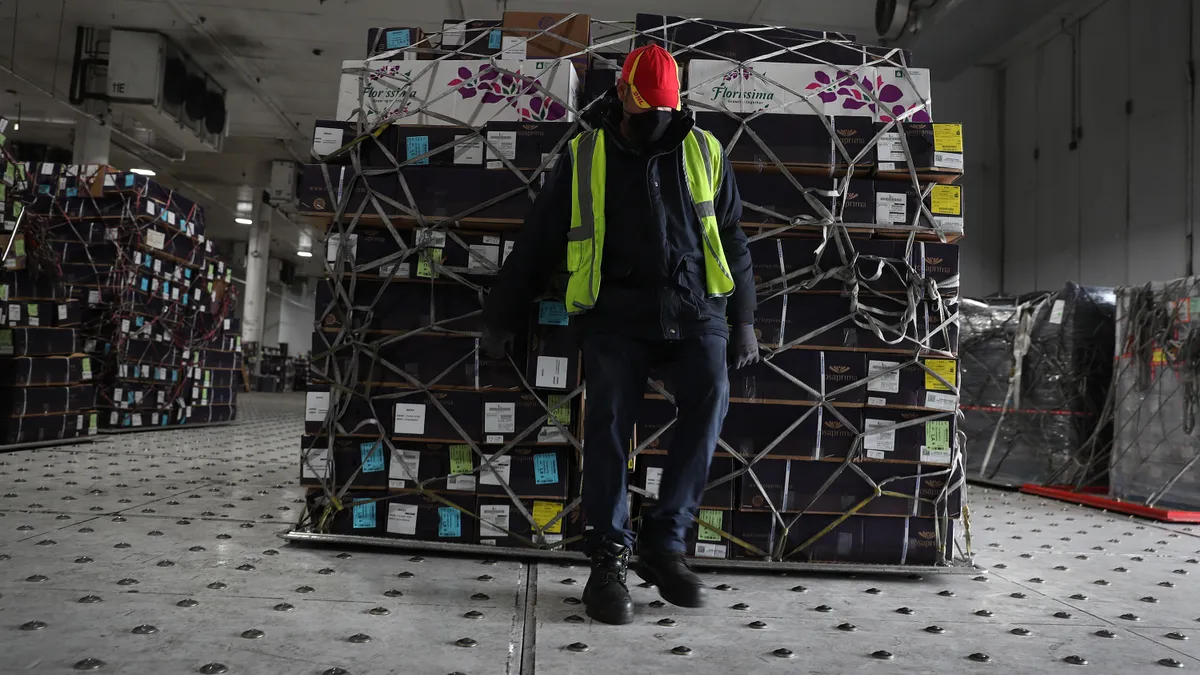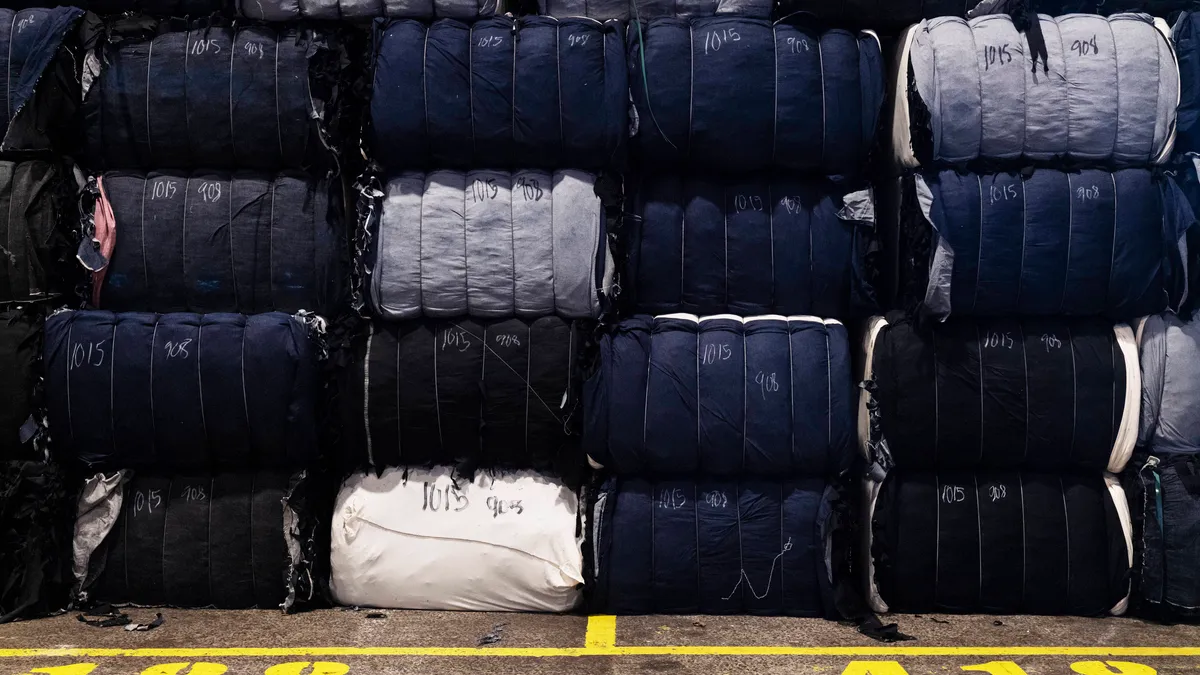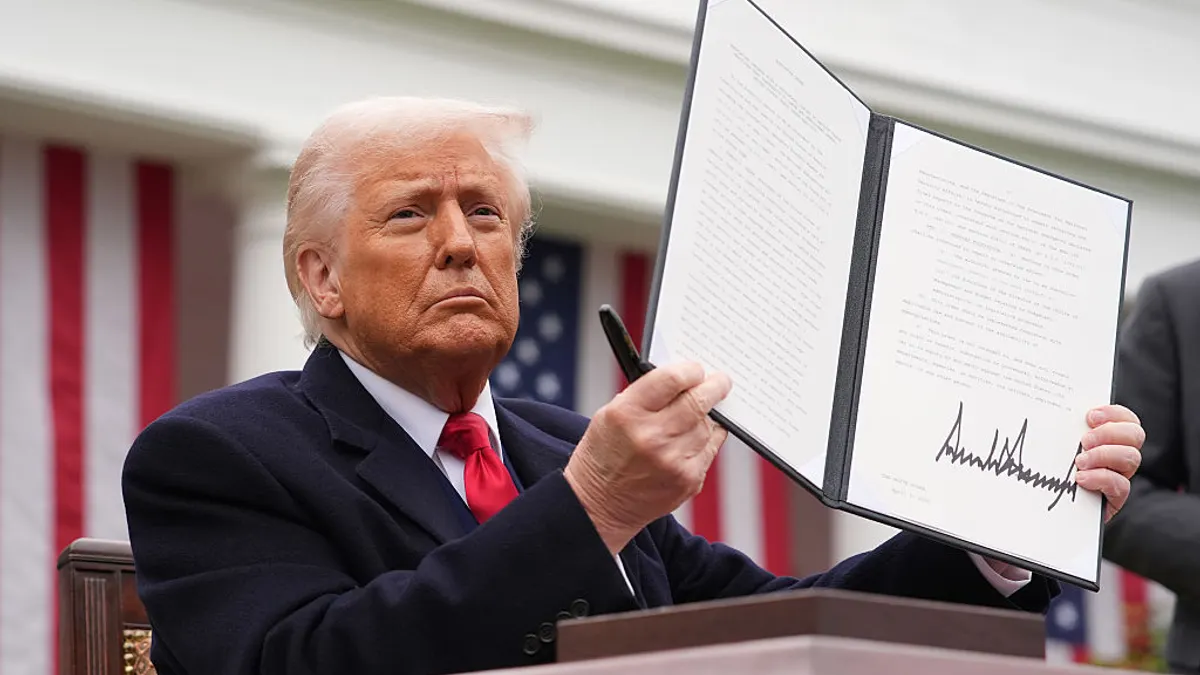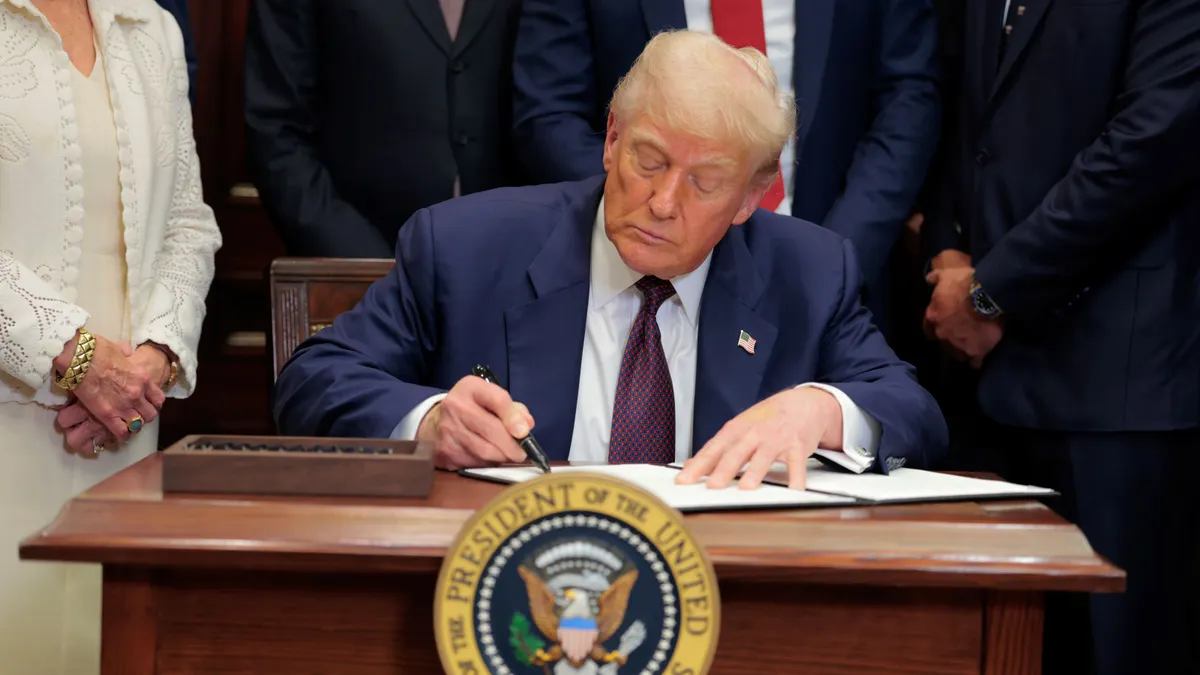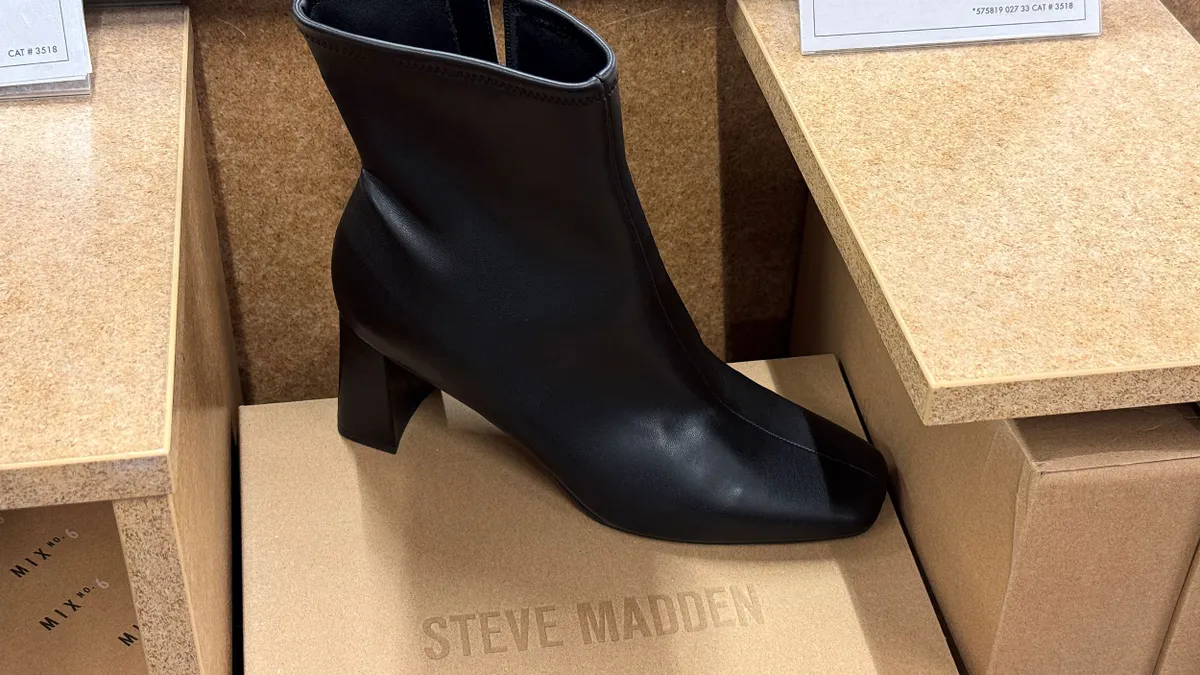Editor’s note: This story is part of a series from Fashion Dive’s sister publication Supply Chain Dive on the de minimis rule’s supply chain impact and its uncertain future.
The de minimis exemption: An amendment to U.S. trade law written nearly 100 years ago that has become a key fixture in cross-border e-commerce supply chains.
But how much longer it will exist in its current state is anyone’s guess.
For now, the provision allows companies to avoid duties and taxes for imports below $800. Utilizing the exemption aids fast-rising e-commerce marketplaces like Temu and Shein’s efforts to sell products at ultra-low prices. It can also help companies address consumer trends quickly and ship a wide range of SKUs while mitigating inventory glut, experts say.
That’s why companies in a wide range of sectors — from apparel and consumer goods to health and beauty — have embraced de minimis, said Brian Bourke, global chief commercial officer at Seko Logistics. Consumers, meanwhile, reap its benefits because they can select from a variety of options at nominal cost.
However, changes may come for de minimis regulations in the near future, as U.S. lawmakers and officials look to curb China’s influence and combat contraband entering the country via low-cost packages. While this could complicate cross-border e-commerce operations, consumer behavior will ultimately dictate how much supply chains adjust, industry observers say.
“These regulations will continue to change,” Bourke said. “What won’t change is the demand for international postal shipping.”
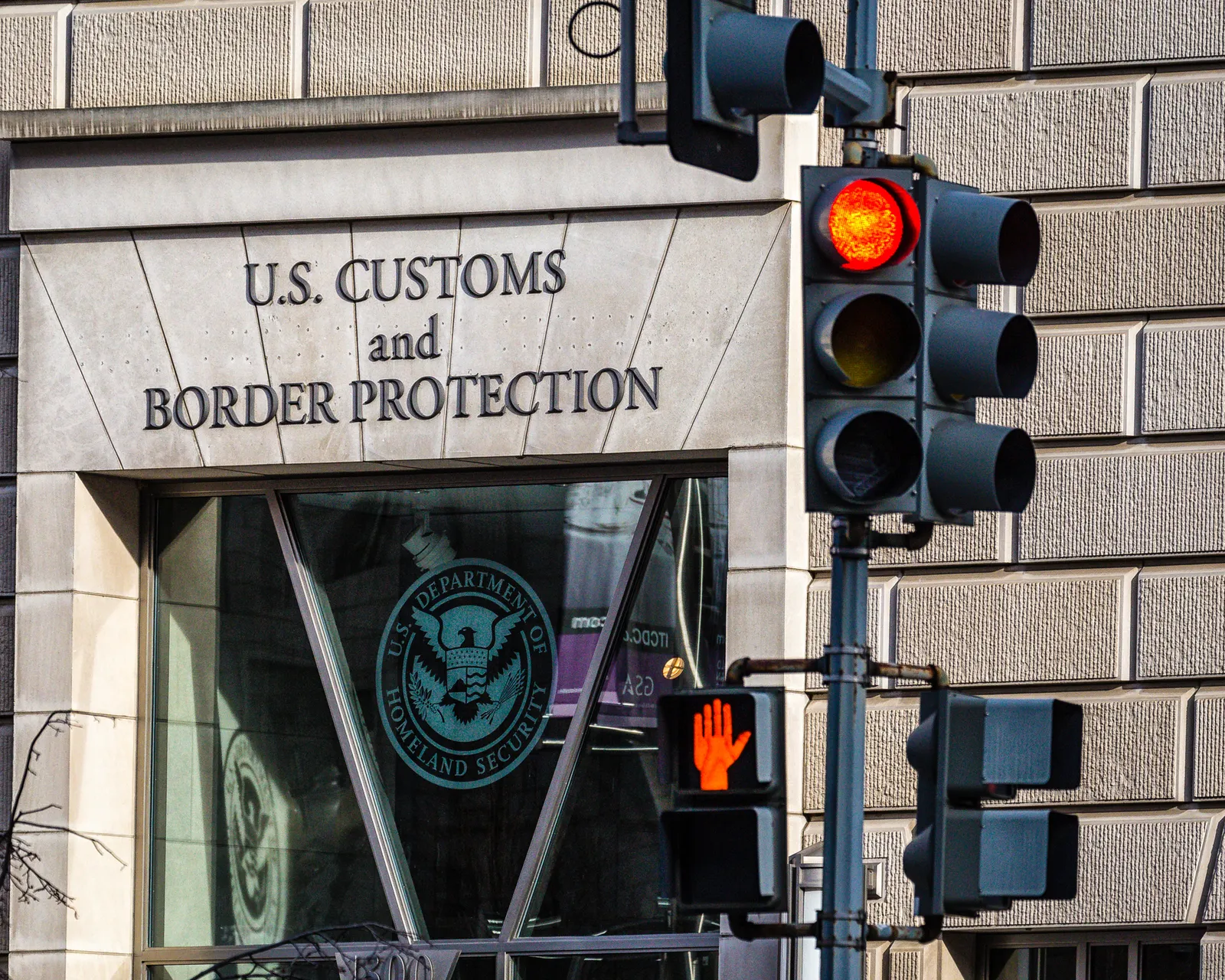
De minimis evolves with e-commerce’s rise
Section 321 of the Tariff Act of 1930, known as the de minimis exemption, permits merchandise shipments with a retail value below a certain dollar amount to be imported duty and tax free. Originally introduced as an amendment to the act in 1938, the exemption allowed a person to bring up to $5 worth of goods into the U.S. for personal use without having to pay duties.
“The provision over the years was really intended more for the individuals who go on a cruise or fly to Europe, and they come back with their souvenirs or that beautiful new leather purse or belt from Italy,” said Lenny Feldman, general counsel and customs counsel to the National Customs Brokers and Freight Forwarders Association of America.
Lawmakers raised the $5 threshold incrementally over the years until it jumped from $200 to $800 in 2016 under the Trade Facilitation and Trade Enforcement Act. The new law expanded the scope of what could be shipped duty-free as Americans became more accustomed to ordering goods from around the world. The COVID-19 pandemic further entrenched those habits.
Today, companies typically leverage the de minimis exemption for direct-to-consumer parcels transported via air cargo to limit their costs while meeting sustained e-commerce demand. This can potentially lead to millions of dollars in savings for larger retailers and marketplaces, Feldman said.
Temu and Shein have emerged as go-to examples of companies with de minimis-reliant supply chains amid the e-commerce outlets’ rising popularity among American consumers. The companies are likely responsible for more than 30% of all U.S.-bound daily volume that falls under the provision, according to a 2023 report from the House of Representatives’ Select Committee on the Chinese Communist Party.
Even Amazon has taken notice of the direct shipping model, with The Information reporting in June that the e-commerce giant plans to launch a discount section on its website that will ship from warehouses in China directly to customers.
Plenty of other brands are also using the de minimis exemption to their benefit, said Izzy Rosenzweig, founder of e-commerce fulfillment company Portless, which helps shippers utilize a Shein or Temu-like model by providing direct cargo flights from China to last-mile fulfillment centers in the U.S.
"Fundamentally, this model is run by efficiency of inventory management."

Izzy Rosenzweig
Founder of Portless
Rosenzweig says the model’s advantage goes beyond avoiding added costs — businesses can respond quickly to consumer trends and keep inventory lean by shipping products straight from the factory to end customers. It’s one leveraged by Shein, which minimizes the supply-demand gap by manufacturing new products in small initial batches of 100 to 200 items, according to its website. It then produces more of the products that receive high customer interest.
How much supply chains have embraced the low-cost and streamlined model of de minimis shipping is evident in CBP data. The number of such shipments the agency processed in 2023 reached 1 billion, more than six times the volume it handled in 2015, it said in March.
“Fundamentally, this model is run by efficiency of inventory management,” Rosenzweig said, adding that “the reason why Shein has grown to a $30 billion business is not because there’s any magic in their clothing. It’s because they run the most efficient supply chain in the world.”
Low-cost package volume into U.S. surges
Political pressure rises around de minimis enforcement
Several groups have emerged pushing back against the growing wave of shipments utilizing the de minimis exemption.
U.S. CBP officials are cracking down on de minimis shipments filed with vague and inaccurate data as part of their efforts to prevent illegal substances, counterfeit goods and products made with forced labor from entering the country. This enforcement push led the agency to suspend multiple customs brokers from a key import program for de minimis shipments in May.
While the CBP’s crackdown may slow down cross-border flows for impacted brokers, it’s needed for an agency that doesn’t have an extensive history monitoring lightweight e-commerce packages, said Cindy Allen, CEO and managing director of Trade Force Multiplier, an international trade consultancy. Thorough inspections on de minimis packages today could help the agency develop more precise targeting against illegal shipments over the long term.
“This is kind of a necessary step, as painful as it may be, to allow CBP the intelligence and the understanding of the environment that allows them to be more effective in their job,” said Allen, a former VP of regulatory affairs and compliance at FedEx Logistics.
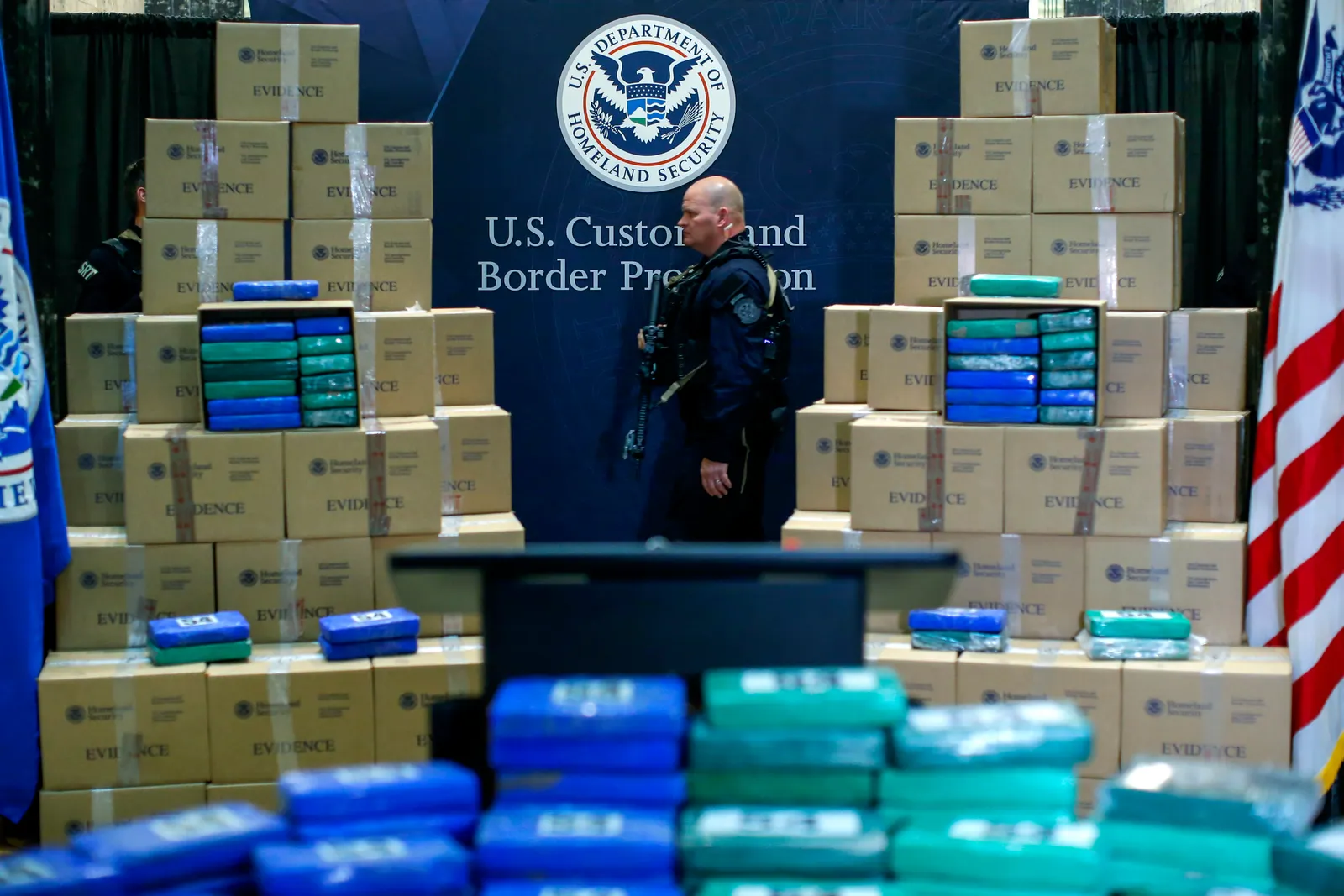
The amount of narcotics, controlled substances and other contraband that officials have discovered in de minimis packages at airports and mailing facilities “is stunning,” according to Homeland Security Secretary Alejandro Mayorkas. The secretary said during an event in July that his department is “hoping to receive a legislative fix” that will give it more authority to address de minimis-related exploitation.
The secretary may get his wish soon. Lawmakers fretting over China's influence and its impact on the American economy have introduced bills in Congress that seek to scale back the current flow of de minimis shipments.
The Import Security and Fairness Act, introduced in July 2023, proposes to end de minimis treatment for imports from China and Russia while strengthening customs screening, and the End China’s De Minimis Abuse Act would prevent more than 60% of China-based goods from utilizing the exemption. A bipartisan group of senators unveiled another proposal to crack down on de minimis shipping in August.
None of the bills have made much progress yet, but House of Representatives Speaker Mike Johnson said last month that the House plans to rein in the de minimis privilege of products subject to Section 301 tariffs.
A coalition of 25 domestic manufacturers, nonprofit groups, labor unions and law enforcement organizations are supporting Congressional reform of de minimis through the Coalition to Close the De Minimis Loophole, which launched in March. Members say the exemption has hurt American businesses’ competitiveness while letting illicit drugs like fentanyl enter the country undetected.
But not everyone in the U.S. is on board with the potential changes. The National Association of Manufacturers, U.S. Chamber of Commerce and four other groups have come out against its potential elimination. In a letter to members of President Joe Biden’s administration, the organizations warned that removing the provision could lead to additional processing and brokerage fees that could more than double the price of a de minimis package.
“Eliminating de minimis is the equivalent of a tax hike that would disproportionately impact small business owners and low-income consumers who purchase affordable goods online,” the groups said.
Changes could spur supply chain shifts and longer shipping times
Experts told Fashion Dive’s sister publication Supply Chain Dive they believe some sort of change to the law will happen soon. But the exact form that change will ultimately take — and when it will take effect — remains uncertain.
A straightforward path for Congress to take would be to lower the U.S.’s $800 threshold, which is a relatively high amount compared to other countries, according to Global Express Association data. Canada, for example, has a customs duty and tax remission value of up to $20 Canadian dollars (approximately $15 USD), save for certain U.S. and Mexico shipments.
U.S. has a high de minimis threshold
Industry observers interviewed by Supply Chain Dive think the U.S. could lower the threshold significantly before most businesses would notice the impact, since the average de minimis shipment value is $54. If the next threshold is lower than that, or doesn’t exist at all, the added costs likely won't be enough to significantly dampen import activity, they added.
However, consumers may see higher prices as a result of tax and duty-related expenses being passed onto them.
De minimis-reliant shippers may respond by ramping up production in countries not targeted by bills like the End China’s De Minimis Abuse Act. After all, shipping from a manufacturing facility directly to an end consumer doesn't have to involve China — it can apply to countries like India, Mexico and Canada as well.
Products with parts still made in China could be assembled elsewhere before entering the U.S. and avoid possible de minimis scrutiny, Audrey Ross, import and export compliance manager for Orchard Custom Beauty, said during a Home Delivery World 2024 panel in June.
"There needs to be accountability throughout the supply chain, if the supply chain is going to become what I like to call a 'comply chain.'"

Lenny Feldman
General counsel and customs counsel to the National Customs Brokers and Freight Forwarders Association of America
Another legislative possibility is strengthening U.S. CBP’s ability to screen shipments. The Biden administration is proposing legislation that would grant the agency the authority to demand additional documentation on de minimis packages — and add a user fee for those shipments — to better detect and identify packages from drug traffickers.
If a more stringent customs process holds up shipments for prolonged periods, that could compromise the value of the direct shipping model, according to John Lash, group VP of product strategy at supply chain software provider e2open. While Temu and Shein aren't known for fast delivery times, testing consumers’ patience further is risky as other retailers continue to improve domestic shipping speeds.
“The model breaks, because you as a consumer would say, ‘Maybe I can save 20% from buying it in China, but it’s not worth waiting for it,’” Lash said.
Whether or not the Biden administration’s proposal becomes law, Feldman of the National Customs Brokers and Forwarders Association of America said all parties in the supply chain — not just the customs brokers filing the information — should work to supply accurate and thorough shipment data. That will help them stay within the good graces of customs officials while keeping de minimis shipments moving.
“There needs to be accountability throughout the supply chain, if the supply chain is going to become what I like to call a ‘comply chain,’” Feldman said. “You know the old adage: The supply chain is only as strong as its weakest link.”
Edwin Lopez, Phil Neuffer and Kelly Stroh contributed to this story.



